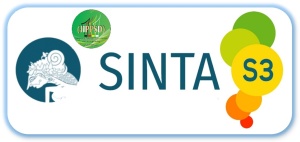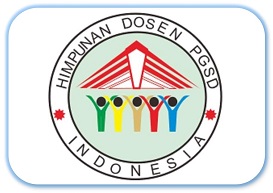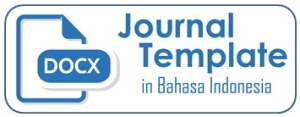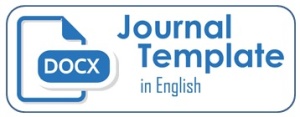PENGEMBANGAN BAHAN AJAR MATEMATIKA BERBASIS ALQURAN DI SEKOLAH DASAR
 ), Yullys Helsa(2), Sherlyane Hendri(3),
), Yullys Helsa(2), Sherlyane Hendri(3), (1) Universitas Negeri Padang
(2) Universitas Negeri Padang
(3) Universitas Negeri Padang
 Corresponding Author
Corresponding Author
DOI : https://doi.org/10.24036/jippsd.v2i1.100034
Full Text:
 Language : en; ind
Language : en; ind
Abstract
The purpose of this study is to produce teaching materials on learning mathematics based on the Qur'an in elementary schools are valid, practical and effective. This research is development research using the ADDIE model. The results showed that the developed teaching materials are categorized very valid with the percentage of teaching materials 91.50%. The effect of practicality test of teacher responsse is categorized very practical with percentage 91,07%, and student responsse is categorized very practical with percentage 92,04%. Assessment of learning outcomes of students is classified very high. Based on these results it can be concluded that the mathematics materials based on the Qur'an in elementary schools declared valid, practical and effective.
Keywords: Al-quran, teaching material, mathematics, elementary school
References
Aldoobie, N. (2015). ADDIE Model Analysis phase. American International Journal of Contemporary Research, 5(6), 68–72.
Alias, N., & Siraj, S. (2012). Effectiveness of Isman Instructional Design Model in Developing Physics Module based on Learning Style and Appropriate Technology. 12 Th International Educational Technology Conference – IETC 2012, 64(4), 12–17.
Barzegari, Hossein. 2014. A mathematical model for a verse of the holy Quran.Interdisciplinary Journal Of Contemporary Research In Business, 6(2), 195-218.
Basri, Tabrani. (2010). Keampuhan Al Qur’an Banyak Dibuktikan Ilmuwan. Nuonlne: Jakarta. (31 Agustus 2010).
Basya, Fahmi. (2007). Matematika Islam Sebuah Pendekatan Untuk Yakin. Jakarta: Republika.
Fitriah, N., Sahrodi, J., & Muchyidin, A. (2015). Implementasi Model Pembelajaran Matematika Berintegrasi Keislaman dalam Meningkatkan Karakter Demokrasi Siswa. Eduma , 4(2), 88–104.
Helsa, Y. (2018). Al-Quran Based Learning Strategy in Teaching Mathematics at Primary Education, 169(Icece 2017), 304–306.
Hendriyadi.(2017). Validitas Isi : Tahap Awal Pengembangan Kuesioner . Jurnal Riset Manajemen dan Bisnis (JRMB) Fakultas Ekonomi UNIAT, 2(2), 169–178.
Ii, G. C. B. (1988). Erratum. Problem Recognition : The Crucial First Stage of The Consumer Decision Process. Journal of Consumer Marketing, 5(1), 53–63.
Kenedi, Ary Kiswanto dan Yullys Helsa. (2017). Literasi Matematis Dalam Pembelajaran Berbasis Masalah. UNP Press: Padang.
Kiswanto, A. (2017). The Effect of Learning Methods ad the Ability of Students Think Logically to the Learning Outcomes on natural Sciences of Grade IV’s Student. Advances in Social Science, Education and Humanities Research, 118, 1040–1046.
S Ahmad. (2017). The instruments of higher order thinking skills. https://doi.org/10.1088/1742-6596/943/1/012053
Sasongko, G. W., & Suswanto, H. (2017). Pengembangan Game Sebagai Media Evaluasi Pembelajaran Pada Mata Pelajaran Perakitan Komputer Kelas X.Jurnal Pendidikan: Teori, Penelitian, dan Pengembangan, 1017–1023.
Suparni.(2012). Pembentukan Karakter Siswa Melalui Pembelajaran Matematika.Jurnal FOURIER,1(1), 45 – 60.
Susanto, Ahmad. 2013. Teori Belajar dan Pembelajaran di Sekolah dasar. Jakarta: Kencana Prenada Media Group.
Yusnita, Eva, dkk. (2011). Pengembangan Modul Pendidikan Kewarganegaraan Program Studi Ilmu Keperawatan Sekolah Tinggi Ilmu Kesehatan (STIK) Bina Husada Palembang. Jurnal Inovasi Pendidikan, 1(1), 57-71.
 Article Metrics
Article Metrics
 Abstract Views : 2100 times
Abstract Views : 2100 times
 PDF Downloaded : 600 times
PDF Downloaded : 600 times
Refbacks
- There are currently no refbacks.







